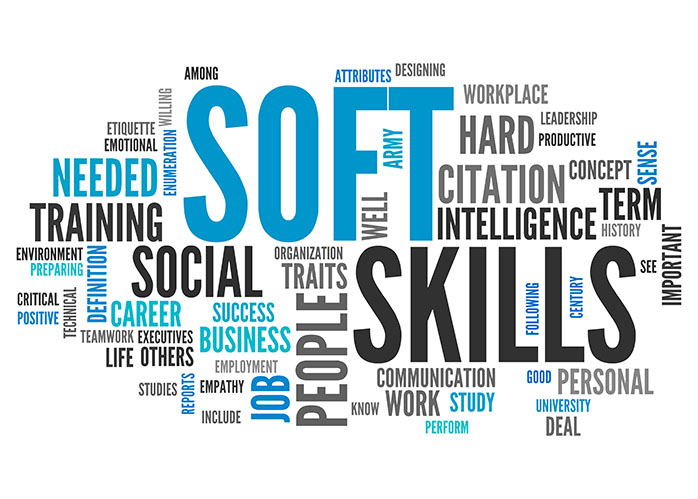 While it’s fairly easy to evaluate a candidate’s hard skills, soft skills prove much more difficult to evaluate – but are often as or more important.
While it’s fairly easy to evaluate a candidate’s hard skills, soft skills prove much more difficult to evaluate – but are often as or more important.
According to a report found on SHRM’s website, 44% of executives say that a lack of soft skills is the biggest proficiency gap in the U.S. workforce. The younger generations have grown up with technology and have had to rely less on interpersonal communication. In addition, 67% of HR managers said they’d hire a candidate with strong soft skills even if his or her technical abilities were lacking, while just 9% would hire someone with strong technical credentials but weak soft skills.
Employers should look beyond the technical skills of candidates when hiring. Some of the fastest growing soft skills for 2020, according to Udemy, are:
1. Growth mindset
2. Creativity
3. Focus mastery
4. Innovation
5. Communication
6. Storytelling
7. Culture awareness
8. Critical thinking
9. Leadership
10. Emotional intelligence
West Monroe Partners, a business and technology consultancy, released a study in 2018 entitled, “Closing the Technology Leadership Gap.” The report investigates the state of soft skills, defined as communication, collaboration, conflict resolution, and leadership in technology and IT hiring decisions. It pinpoints the lack of focus on soft skills in today’s workplaces as the cause of productivity, innovation, and growth issues.
Key highlights of that survey include:
HR Leaders Want Soft Skills (But They Don’t Cultivate Them)
- 98% of HR leaders say soft skills are important in landing a technology position.
- Verbal communication and collaboration were ranked the most important soft skills. However, most companies don’t invest in developing their talents’ soft skills.
Lacking Soft Skills Hurts an Organization’s Ability to Innovate
- 43% of full-time employees say soft-skills-related challenges with IT have negatively impacted their work, which is problematic considering that innovative projects increasingly require employees to work alongside each other.
- Collaboration-based issues have delayed or prolonged a project for 71% of respondents. A third of employees have missed a deadline altogether because of communication issues.
Employers should look beyond technical skills when hiring. Pre-employment assessments can help identify a candidate’s strengths and weaknesses in various soft skill areas. When selecting an online test, it’s important to make sure that these tests are validated for the job family.
Additional ASE Resources:
Pre-employment Assessment Services – Utilizing assessments can help identify areas where skills might have been exaggerated on a resume. ASE offers many options for non-biased employee assessment that can access culture fit, skills, behavioral traits, and more. For more information please contact Mike Burns.
ASE Talent Development: ASE offers over 75 unique courses that can assist in developing or improving soft skills. View upcoming courses here.
Sources: SHRM; Yahoo Finance; westmonroepartners.com